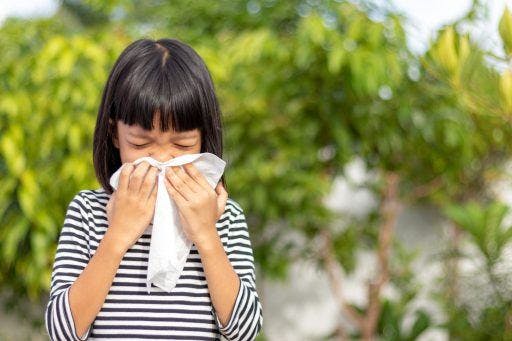Many people view nighttime mouth breathing, often accompanied by snoring, as a minor inconvenience rather than a significant risk. Have you ever been bothered by the loud, rough noise your sleeping partner makes, only to chalk it up to a tiring day? Or have you noticed a child exhibiting the same symptom and attributed it to a possible cold?
Mouth breathing isn’t something you should ignore. Neglecting to address this oral condition before it progresses can lead to complications. Take charge by equipping yourself with accurate information and proactively addressing the issue.
What is mouth breathing?
According to the Journal of the American Dental Association (JADA), “mouth breathing may be defined as habitual respiration through the mouth instead of the nose.”
You might be wondering: is mouth breathing that bad? Your nose and nasal cavities clean, moisten, and warm the air before it travels to your lungs. “Failure to do so, by breathing through the mouth instead of the nose, has been considered to be injurious to the tissues lining the respiratory tract and oral cavity because of the impact of cold, dry, and dirty air,” adds JADA.
This kind of breathing can cause a range of long-term health concerns. It impacts “the development of the facial skeleton and the occlusion of the teeth because of the displacement of normal labial, buccal, and lingual muscular forces.”
As we all know, poor breathing habits can develop from a young age. We’ve all seen a baby or toddler, snoozing away with their mouth open! While it might seem cute, detecting and addressing mouth breathing early helps prevent the habit from worsening.
What causes mouth breathing?

According to the Jornal de Pediatria, mouth breathing “occurs when nasal breathing is substituted by a breathing pattern in which the nose is supplemented by oral respiration.” The study identified genetic factors, incorrect oral habits, and nasal obstruction as possible roots of the syndrome.
Other causes of oral breathing for adults and children include:
- Fully blocked nasal passages due to deviated septum
- Growth of nasal polyps in the sinuses
- Enlarged tonsils
- Nasal congestion due to colds, allergies, asthma, and sinus infections
- The shape and size of the nose and jaws
Mouth breathing complications

Chronic oral breathing can lead to multiple health concerns. According to the Jornal de Pediatria, these complications include facial deformities, abnormal body posture, speech disorders, and teeth misalignment. Here’s a closer look at the effects of mouth breathing:
1. Dry mouth
Mouth breathing during sleep can result in a dry mouth as it reduces saliva production. The National Institute of Dental and Craniofacial Research (NIDCR) found that chronic dry mouth increases the risk of tooth decay and other oral infections. The lack of moisture also makes chewing, swallowing, and talking more challenging.
2. Bad breath
A study, published in the international journal Clinics and focused on children aged three to 14, revealed a high occurrence of bad breath among mouth breathers. This unpleasant odour occurs when the saliva in the mouth dries out. Without sufficient moisture, the mouth’s self-cleaning function is compromised, allowing bacteria and foul-smelling compounds to thrive.
3. Speech impediment
A study published in the International Journal of Clinical Pediatric Dentistry highlighted the correlation between mouth breathing in children and tongue thrusting. This condition interferes with the proper functioning of the muscle, resulting in noticeable changes in speech. Children affected by this issue may benefit from therapy to correct problems like slurring or lisps.
4. Malocclusion or misaligned teeth
Research by ACTA Otorhinolaryngologica Italica revealed that bad habits aren’t the only factor interfering with teeth alignment. Airway obstruction in the nasal passage can also affect facial structure in growing children.
More importantly, the data highlights how mouth breathing causes teeth misalignment and several oral issues. These include crowded teeth, cracked lips, improper tongue position, jaw pain, and a gummy smile.
Other effects of mouth breathing on oral health
According to a journal article published in Frontiers in Public Health, mouth breathing can also have the following dental and oral implications:
- Enlarged tonsils and adenoids
- Bruxism, where you excessively grind or clench your teeth, can cause teeth fractures
- Temporomandibular disorder, which can cause pain in your jaw joint
- Periodontal disease (a serious gum infection)
- Dental caries
How to diagnose mouth breathing
If you suspect that you or your child may be mouth breathing, you can speak to your doctor. They can investigate the underlying cause by inquiring about allergies, sleep patterns, snoring, sinus issues, and breathing difficulties.
Maintaining routine dental examinations is also important, as your dentist can flag symptoms like bad breath, cavities, or gum disease. Your doctor or dentist may refer you to an Ear, Nose, and Throat (ENT) specialist for further evaluation.
How to treat mouth breathing

Can mouth breathing be corrected? For oral breathing due to colds and allergies, doctors can prescribe medications such as:
- Decongestants
- Antihistamines
- Steroid nasal sprays
If a malocclusion is causing your mouth breathing, your dentist may recommend straightening treatments, such as braces or aligners. ClearCorrect is a leading aligner with a triple-layer ClearQuartz material that gently pushes your teeth in the right direction while providing maximum comfort.
However, an aligner isn’t a mouthguard. While your teeth are straightening up, your specialist may advise other equipment to address the mouth breathing.
For example, they might advise individuals suffering from obstructive sleep disorders to wear a continuous positive air pressure (CPAP) machine at night. The appliance delivers air to the nose and mouth to ensure unblocked airways.
Oral healthcare professionals can also suggest orthodontic devices designed to widen the palate and open the nasal passages. This type of treatment targets the underlying causes of mouth breathing only.
Remember it’s never too late to fix mouth breathing. For chronic and complex cases, consult a healthcare provider to determine the most appropriate solution. If necessary, they may suggest a surgical intervention to correct the shape of the nose and facilitate improved nasal breathing.
Work closely with a professional who can evaluate your (or your kid’s) mouth breathing and provide personalised recommendations. They can guide you through the available treatment options, allowing you to make informed decisions to enhance your breathing and overall well-being.
References:
Alhazmi, W. H. (2022). Mouth breathing and speech disorders: A multidisciplinary evaluation based on the etiology. Journal of Pharmacy and Bioallied Sciences, 14(5), 911. https://doi.org/10.4103/jpbs.jpbs_235_22
Dry Mouth. (n.d.). National Institute of Dental and Craniofacial Research. https://www.nidcr.nih.gov/health-info/dry-mouth
Emslie, R. F., Massler, M., & Zwemer, J. D. (1952). Mouth Breathing: I. Etiology and Effects (a Review). Journal of the American Dental Association, 44(5), 506–521. https://doi.org/10.14219/jada.archive.1952.0099
Grippaudo, C., Paolantonio, E. G., Antonini, G., Saulle, R., La Torre, G., & Deli, R. (2016). ACTA OTORHINOLARYNGOLOGICA ITALICA. Acta Otorhinolaryngologica Italica, 36(5), 386–394. https://doi.org/10.14639/0392-100x-770
Harvard Health. (2015, August 6). Does breathing through my mouth affect my dental health? https://www.health.harvard.edu/newsletter_article/does-breathing-through-my-mouth-affect-my-dental-health
Lee, Y., Lu, C., Cheng, W., & Li, H. (2022). The Impact of Mouth-Taping in Mouth-Breathers with Mild Obstructive Sleep Apnea: A Preliminary Study. Healthcare, 10(9), 1755. https://doi.org/10.3390/healthcare10091755
Motta, L. J., Bachiega, J. C., Guedes, C. C., Laranja, L. T., & Bussadori, S. K. (2011). Association between halitosis and mouth breathing in children. Clinics, 66(6), 939–942. https://doi.org/10.1590/s1807-59322011000600003
[Orthodontic treatment in mouth breathing]. (1993). PubMed. https://pubmed.ncbi.nlm.nih.gov/8317222/
Shah, S., Nankar, M., Bendgude, V., & Shetty, B. (2021b). Orofacial Myofunctional Therapy in Tongue Thrust Habit: A Narrative Review. International Journal of Clinical Pediatric Dentistry, 14(2), 298–303. https://doi.org/10.5005/jp-journals-10005-1926
Tamkin, J. (2020). Impact of airway dysfunction on dental health. Bioinformation, 16(1), 26–29. https://doi.org/10.6026/97320630016026



